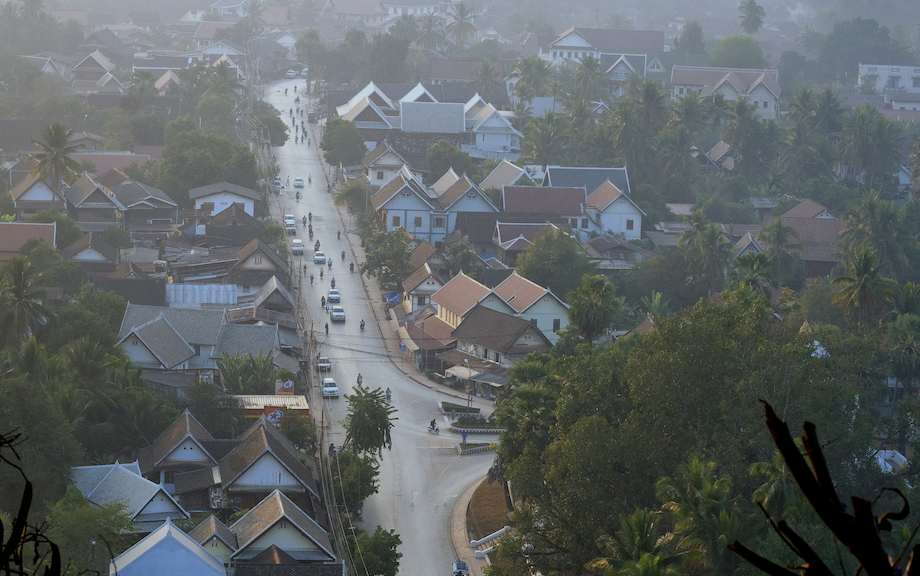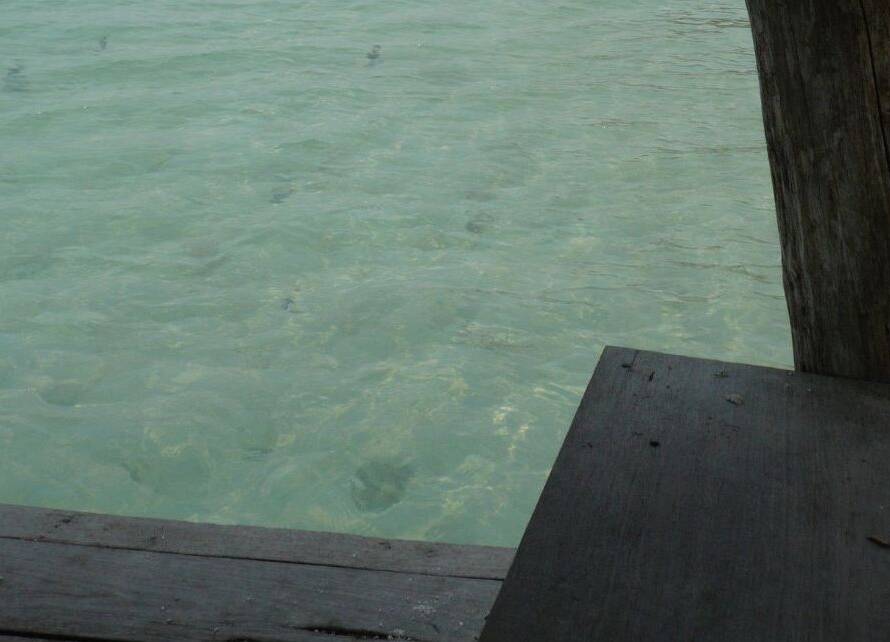
Stressful Situations
…and the tools to avoid burnout and exhaustion
I am in the custom’s office of Savannaket, a border town between Vietnam and Laos. I am also the only person with a passport not from one of those two countries. I have been on the road for the better part of 4 months and everything I have fits into one rucksack which is sitting on the bus just outside the office.
All the “locals” had shuffled out of the custom’s office and back onto the bus and as I am having my passport inspected, I hear my bus start its engine and before I can do anything I see the bus drive off. With all my possessions on it.
I Panic! I am sure you will recognize these symptoms of stress:
My heart is racing, I am breaking into a cold sweat, my breath quickens, and my thoughts are all hyper-focused on the problem at hand. Though to be honest my first thought was probably WTF?!
This portion of my trip has already been a logistical nightmare.
A bit of background to give you the lay of the land (pun intended).
I had left early that morning from HoiAn, Vitenam, which you can imagine a square is the bottom right corner of that square. Pakse, my destination is at the bottom left corner. I had bought a ticket for a bus which should have been traveling due west from Hoi An to Pakse. The agent had quoted me one price and the next day when I went to pay I was charged way more. and when on a third visit I pointed out that I had been charged a whopping 20% above their published price for the journey, the reaction was swift and violent:
The agent banged his hands on the table,
Ripped my ticket and other docs out of my hands and then
Pulled the chair I was sitting on out from under me.
When he started lowering the shutter and I feared that I was getting locked in, I ran out. Unsatisfied, the agent followed me out and pushed me off the stoop.
I am still not sure how, but I managed to walk away from this situation with a partial refund of what I had been overcharged and having scheduled a 5am pick up free of charge.
But the joke was still on me. By the time I was dropped off at the bus it was clear it was not going due west but was instead heading 3 hours north to the TOP right corner of my square to cross into Laos at Savannaket (the top left corner of the square) which is where I was freaking out in that custom’s office.
So, on very few hours’ sleep, knowing I had been jipped in more ways than one I was struggling to figure out my next move and before I even realized what I was doing I RAN.
I chased after the bus … needless to say there was no chance in hell I was going to reach it. I ran screaming my head off, on the verge of tears, in the hope that someone would hear me and stop the bus and let me back on…. Without my passport. It became clear very quickly that none of that was going to happen. I stopped running and defeated I started walking back to the custom’s office, where I hoped the officer would still have and return my passport. As I neared the custom’s office I was met by laughter. People standing around imitating my desperate run and screams and laughing at me.
The bus, someone gratefully explained, was just driving 1mile down the road, to the Laos side of the border, where it would stop for a 1hr lunch break. So, it seemed I had no real reason to panic, then again could only judge the situation with the information I had.
I got my passport, thank goodness, and walked across the bridge, in the heat to the where the bus was. and By the time I had made it to the other side of the border the jitters had faded, by breath was back to normal and the terror I had felt watching the bus drive off was slowly fading.
In the many years since my trip and the many years of study of anatomy, and neuroscience and how well-being what I learned was why it felt so great to run in the moment, and how the running helped my body “digest” the stressful situation, I had inadvertently stumbled upon what is referred to as “stress cycle completion”. The long and short of it meant that the stress hormones were not still circulating in my bloodstream, which in practical terms meant that when I did finally arrive in Pakse late that evening I fell asleep easily and slept very deeply.
Stress Cycle completion is a way to let our bodies know we are no longer threatened or in danger and knowing how to do give our body that ‘you are safe signal’ is one of the most effective ways to avoid burnout and emotional exhaustion. And yet, how often does it happen in our life that we panic about something which turns out to be a non-issue and yet the feelings of the stress linger in our body and negatively impact everything from how we eat, the way we relate to others, and how we sleep?
The Practice
So how might we give our body that signal that we are safe so that the “stress response” can be turned off?
Below are a few short practices that will help complete the stress cycle:
- Stand-up and go for a walk, and as silly as it might feel take heavier steps, like you are marching or stomping your feet, or even jumping up and down. If you can’t go for a walk, just the stomping and/or jumpin will mimic the stress cycle and help the body ‘use’ the cortisol and adrenaline.
If that is not your thing…
- Find your favorite song, put on your head phones and hum along to it, or if you have a bathroom stall you can escape to maybe sing and dance along to it! The humming, as well as having the effect of lengthening and regulating our breathing also communicate to the body that you are safe, as when we feel safe we sing we dance and we have slow regulated breathing.
The Science of Stress
What I know now is how much that panicked run was exactly what I needed. Whether or not you have heard of the “fight, flight, freeze” I thought it would be useful place to start for you to better understand our stress response.
When you encounter a stressor an area of the brain called the amygdala sends signals to the hypothalamus, which intern send information to the rest of the body via the nervous system.
Our Nervous System has two branches, the Central Nervous System and the Peripheral Nervous System. And our Autonomic Nervous System which is part of the Peripheral Nervous System is responsible for our stress “fight, flight, freeze” response.
When the sympathetic nervous system is activated the adrenal glands release the hormone epinephrine (adrenaline) into the bloodstream.
This can lead to several changes, such as
fast breathing,
a rapid heartbeat,
increased blood pressure,
muscle tension,
an energy surge, and
increased alertness.
Ie what we need to be prepared to “fight, flee or freeze”.
And let me be clear, although I think you know this, stress does not require a situation like the one in my story to be triggered.
The medical definition of stress: “the perception of a real or imagined threat to your body or your ego.” Whether it is real or imagined, when you perceive something as stressful, it creates the same response in the body. Another broader definition comes from Kelly McGonigal:
“Stress is what arises when something you care about is at stake” so, regardless of the situation, stress can be the result of our thoughts, emotions as well as external physical stressors.
Once the sense of threat or danger has passed, your parasympathetic nervous system puts the “brakes” on and lessens the body’s stress response.
The parasympathetic response allows the body to attend to digestion, and sleep which are cornerstone’s to our overall health.
If, however, you aren’t able to complete the stress cycle, your body may repeat its stress response. Prolonged and chronic stress can take its toll. So finding ways to mimic the stress response cycle and effectively “put on the brakes” is what the practice below is all about. The effects of chronic stress hammer home how much mind and body are one:
- On the milder end of the spectrum prolonged stress can result in poor concentration, irritability and frustration.
- In the long term it is known to be a root cause of heart disease, stomach ulcers, sleep dysregulation, psychiatric disorders, depression, anxiety, fatigue and burnout*
*please note that these are LONG TERM effects of CHRONIC STRESS and what we are doing here is ensuring that whatever stress you are living with, it stays short-term so you that you can instead thrive.
In another chapter will also talk about all the BENEFITS of STRESS.
How to down Regulate from Stress
What things can help the body ‘down-regulate’ the stress response?
As the expression “fight, flight, freeze” suggests,
- Exerting yourself physically including exercise is a great way to help the body complete the stress cycle.
So, my run across the border and making exercise part of my habits is hugely beneficial! (…and we will see in future chapters how exercise is beneficial for way way more than just regulating our stress response)!
But there are other ways, I am sure some part of you already knows or recognise that you do some of these thigs instinctively. Given how positive feedback loops work, doing the opposite of the things triggered by the stress response signals to our body that it can down regulate the stress response.
- Slowing your breathing;
- Engaging in Positive Social Interactions;
- Laughing;
- Crying;
- Creative Expression;
- Physical Affection;
- Relaxing your muscles.
But we are all individuals, so which of these work best for you will also depend on what makes you feel safest. Play around and see what ways you might be able to build these into your day to day. Not necessarily as something you do in response to a particular situation, but something you build as habits and rituals in your life.
How will you know that you have completed the cycle? For me I often notice a deeper than normal breath, a sigh or a yawn and often I notice fatigue as the body shifts back into it’s parasympathetic response.
In some ways it’s like knowing you are full after a meal or when you’ve had an orgasm — your body will let you know. It may be a learning experience to know what your personal signals are, but as a guide here are a few things you can look out for
- a shift in mood or mental state
- a release of physical tension,
- you breathe more deeply,
- your thoughts relax, or
- a sudden urge to go to the bathroom.
I hope you have foud that helpful and I look forward to hearing if or how this has been useful to you.



